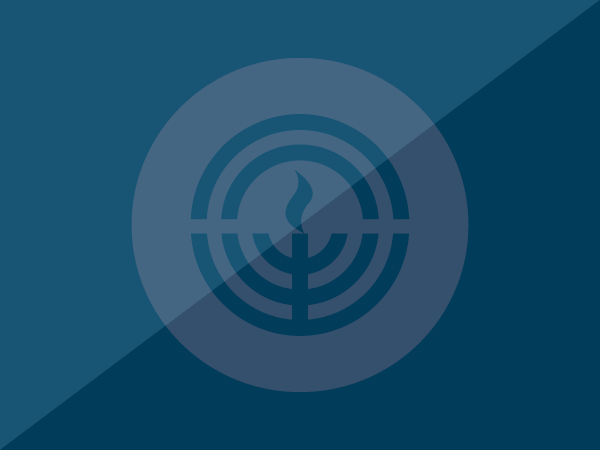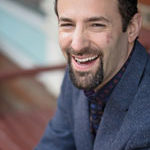A few years ago, I had the privilege of reading Jewish plays for a competition. In doing so, I learned a great deal about the layout of scripts: the differences between stage directions and dialogue, scene descriptions and notes of emphasis. The Passover Haggadah is much like the script of a play, complete with dialogue, stage direction, and the rest.Another way to think of the Haggadah is as the raw material upon which we as participants are to expand and expound, bringing ourselves in the conversation along the way – a curated conversation. I’m sure many, if not all, of us have been to a seder where the experience harkens back to a classroom where each student reads a paragraph aloud. For me, those memories are not always positive. Since everyone has the same text in front of them, they can follow along, looking to ensnare the reader in their mistakes and causing undue anxiety. Seder might be a little different, as we’re most likely with family and friends, but the act of reading aloud can still be daunting. Particularly for the youngest participants. (Don’t we all dread being stuck with the paragraph where we have to pronounce all those rabbis’ names?)So, what’s the alternative? To help change the culture of our seder table experiences, I believe we need to look holistically at the experience as a curated conversation, a dialogue prompted by a story, in this case the exodus story. Within this story that we all know so well are nuanced prompts designed to spark conversation. The items on the seder plate, the plagues, the actions like the first handwashing are all designed to trigger questions and dialogue among participants of all ages, but we rarely use them as such. Instead, we mostly just go through the motions.I’m going to suggest that this year you find ways to go off road throughout the seder, to go rogue, to dialogue, to improvise and improve the level of participation by all. There are many ways to do this. Here’s one suggestion.Consider the Magid — the telling of the story. Here I’ll advocate for trying something other than the traditional read-aloud. Over the course of my journey as educator, I discovered bibliodrama, where you take a portion of text and jump inside it, becoming anything in the selection. For example, consider the part where the princess discovers Moses: “The daughter of Pharaoh came down to bathe in the Nile, while her maidens walked along the Nile. She spied the basket among the reeds and sent her slave girl to fetch it. When she opened it, she saw that it was a child, a boy crying. She took pity on it and said, ‘This must be a Hebrew child.’”What are the nouns in this passage? Pharoah’s daughter, the Nile, the maidens, the basket, the slave girl, the baby. Each of these can provide perspective on the scene. In bibliodrama, we ask questions of these “characters,” for example:
- Nile, what does it feel like to be the cause of death for the Hebrew males?
- Slave girl, what does it feel like to save this one — Moses?
- Reeds, how do you feel about being the one to stop the basket?
Here, the narrative provides the context and the participants around the seder table can answer in their own way, expressing their own emotions.
Here’s another example of a way to engage everyone – a maror tasting. Compare different kinds of maror, like romaine lettuce, endives, and horseradish. How does the level of bitterness compare? Explore how varying amounts of bitterness can transform our lives, and bring about positive change, just like the bitterness in the story helped Jews escape slavery and find freedom.
The seder is ripe with prompts for curated conversation! As you plan this year’s seder, I encourage you to consider ways you can promote discussion and invite participants to get involved. Break away from the tradition of reading the text as a whole and pick snippets that everyone around the table can relate to. It can make the mitzvah of telling the story more engaging, of envisioning what it was like to experience the exodus more meaningful.
This year, the 76th anniversary of the Warsaw Ghetto uprising, which took place on Erev Passover, falls on that night again.
If you’re looking for more ways to engage your seder participants, feel free to reach out to me at jsakofs@jfedgmw.org to arrange for a conversation.


